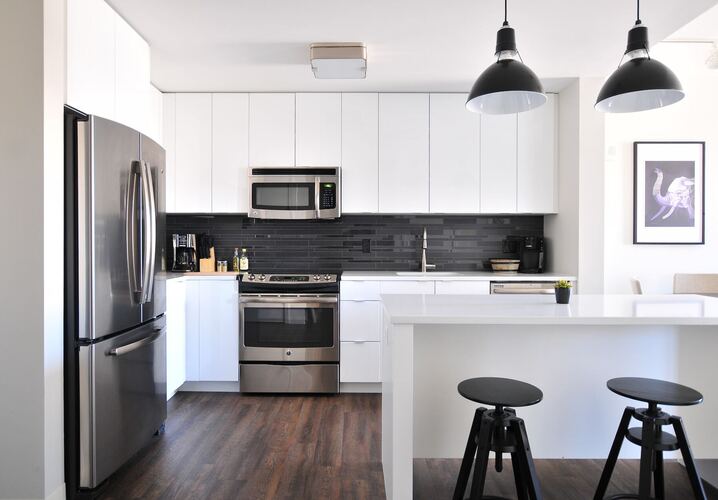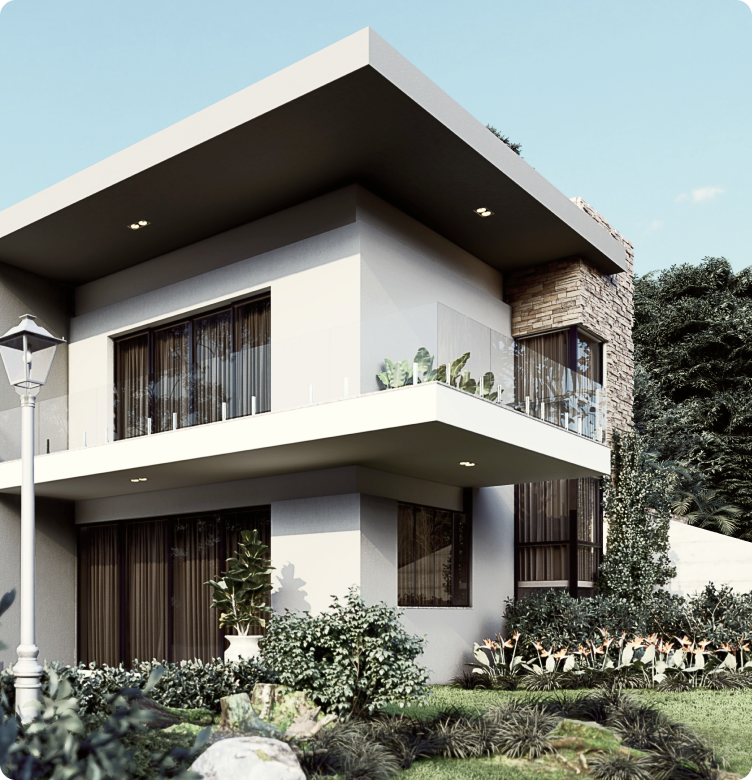Nestled in the heart of the location lies one of the most spectacular destinations in the world. And this is no exaggeration. Yes, the Azores is spellbinding, with green rolling hills, spectacular views of the Atlantic Ocean and unique landscapes. The incredible food, friendly locals, and relaxed pace of life add to the island’s allure. While many tourists come to marvel at these charming islands, buying property in Azores presents an attractive opportunity whether you are looking to move permanently or secure an investment property that will increase in value over time.
In this article, we’ll dissect the brilliance of this archipelago, an autonomous region of Portugal. Whether you are looking for a terrific Azores waterfront property, a luxury villa with sweeping ocean views, or are looking to secure a nice property investment in Ponta Delgada, the capital city, you’ll discover a wide selection of lovely properties that meet your requirements.
Why should you buy property in the Azores?
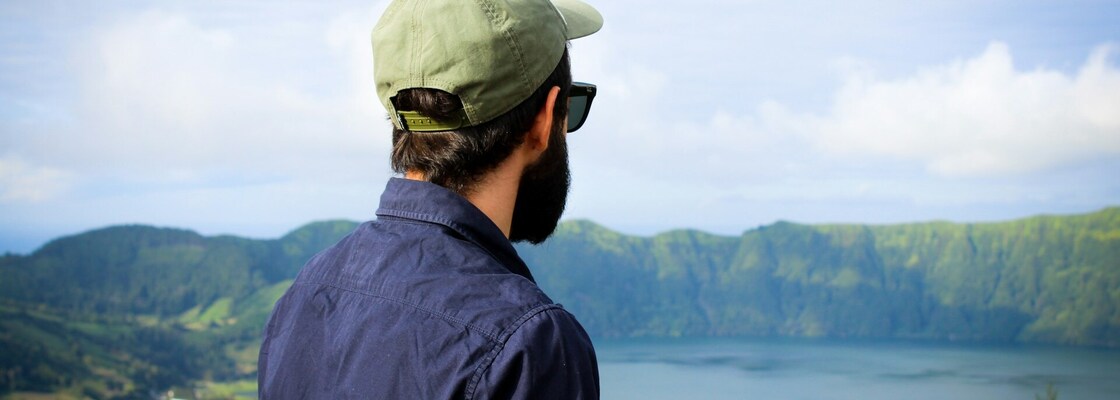
The incredible landscapes, unique to the islands, are just one of the many reasons why buying property in the Azores is an excellent idea. While Portugal, in general, is renowned for its high quality of life and safety – ranking in seventh position in the 2023 Global Peace Index – the Azores excels as one of the safest parts of Portuguese territory.
While other parts of Portugal are better known for luxury properties, such as the Algarve and Cascais, the Azores is emerging as a dream for luxury buyers, with incredible villas and houses up for grabs. Plus, these properties are generally very affordable when compared with luxury properties in other Western European countries.
Should you consider relocating or investing in the Azores, you’ll need to be aware that, at some point, you’ll be driving and come across a cow or two blocking your path. This is perfectly common, and you’ll have to practice your patience until they meander off the road, clearing your way. Indeed, the Azores is renowned for its relaxed pace of life, incredible food scene – from cheeses to teas – and rustic beauty. The vibrant greens of the rolling hills are unlike any other place, and while it can be rainy at times, the unique climate has created one of the most wonderful islands in the world.
Can foreigners buy property in the Azores
There are no restrictions on foreigners buying Azores property. This is one of the main advantages of buying property in Portugal, as you will have the same right to buy as Portuguese locals.
Do bear in mind, however, that if you are looking to move to the Azores, you will need to secure a residence permit, although there are several residence permit options on the table, such as the Golden Visa, D7 Visa, or Digital Nomad Visa allowing expats to easily relocate to Portugal.
Azores Real Estate Market: The Wonder of the Azores
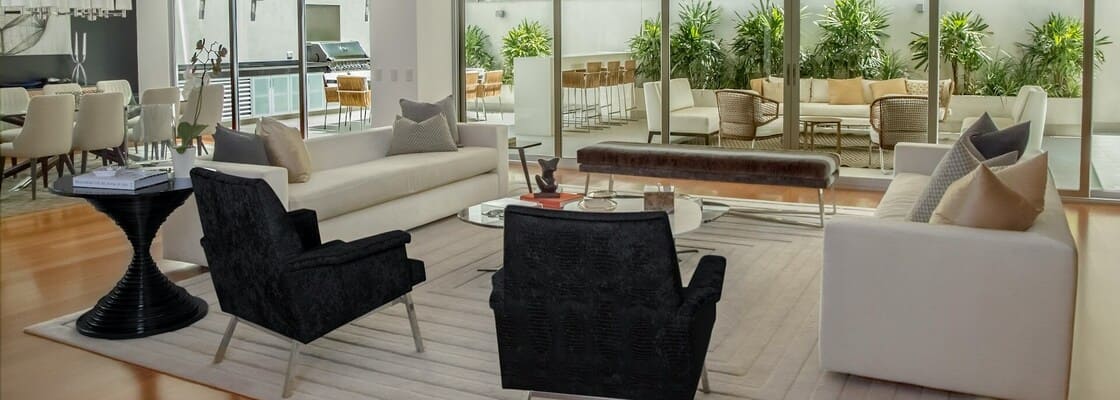
The real estate market in the Azores has experienced a hike in prices in recent years, although is still affordable compared with other parts of Portugal. Regarding real estate prices, as of 2024, the average asking price for property on the island of São Miguel Island, the largest island in the archipelago, is €1,629 per square meter. You will find that prices on other islands will vary.
You will also find incredible luxury properties on the market for those looking for something extra special. These properties are more common on São Miguel, particularly close to the capital, Ponta Delgada.
While the Azores makes for a peaceful home, there is also the potential to secure a strong return on your real estate investment. In 2023, the total number of overnight stays in the Azores was a whopping 3.8 million, which represents an increase of more than 15 percent compared with 2022. The total number of guests stood at 1.2 million, almost 15 percent higher than in 2022. This highlights that the Azores are experiencing a tourism boom, indicating the potential for a high rate of return on your real estate investment.
Where to buy property in the Azores?
The Azores boasts a wide array of fabulous landscapes, and each island will have its own unique vibe and traditions. In this section, we’ll provide a brief rundown of the islands, conveniently split into the eastern islands, central islands, and western islands.
The eastern islands: São Miguel and Santa Maria
The island of São Miguel, the largest of the islands and home to the capital, Ponta Delgada, is a good starting point and base to begin your exploration of the archipelago. As we have mentioned, if you are looking to secure a luxury property in the Azores, then this is also a good place to start, as you will have more options in São Miguel, in addition to fine dining experiences, five-star hotels, and a good nightlife scene. Ponta Delgada is a city where the buildings, streets, and sidewalks are built from volcanic rocks, creating a rustic elegance to the city.
Santa Maria island, to the south of São Miguel, is for beach and wine lovers. You’ll find stretches of inviting white beaches, such as Praia Formosa, and vineyards covering the slopes. There is also an impressive amphitheatre on Santa Maria, the Amphitheatre of Capua, that resembles a giant staircase and is well worth a trip to.
The central islands: Terceira, Graciosa, São Jorge, Pico and Faial
Alongside São Miguel, Terceira is a safe bet if you are looking for luxury or prestigious properties, whether you are looking for a modern apartment or exclusive villas. Many of the properties here have beautiful sea views, private pools, and other added amenities to ensure complete comfort. For buyers looking for peace and quiet, fewer tourists venture to Terciera, making it the perfect relaxation spot.
Graciosa or “graceful” as the name translates to Portuguese is home to just 4,780 inhabitants and is one of the quieter islands in the archipelago. While Graciosa may be too remote for some property owners, and the rental yields may be lower given the lower footfall from tourists, it is a spellbinding spot and should certainly be on your hit list as it is classified by UNESCO as a World Biosphere Reserve.
São Jorge, in the center of the central island cluster, is a true gem. Known for its local queijo (cheese) that you can find across mainland Portugal and its abundant use of spices brought to the island during the Age of Exploration, food lovers will enjoy this long, slender island imensly – make sure to try to fish, pork, and clam dishes in particular.
Pico Island, to the west of São Jorge, is home to the highest mountain in Portugal, Pico Mountain, including mainland Portugal and Madeira. Towering over the island, Pico is unlike any other island and, at a mere 300,000 years old, is a young island compared with the others in the archipelago, which date back millions of years. For foreigners buying property, the traditional town of Lajes could be a charming place to buy.
Faial Island as with the other islands in the central or eastern islands (with the exception of Terciera) is very remote and perhaps not the best place if you are looking for a bustling place to live. As island of tremendous beauty, you’ll find the vibrant blue hydrangeas come out in their droves in the summer months, from July to August in both Faial Island and São Migeul, amongst others.
The western islands: Corvo and Flores
The western islands are the least well-known. Corvo has the smallest population of the Azores islands and has some of the most affordable property prices in all of Portugal, while Flores remains relatively undiscovered in terms of its real estate market. Both Corvo and Flores have distinctive ecology, numerous protected areas, and unique bird species.
For luxury buyers, however, the eastern islands are your best bet as they provide greater property options and amenities.
Practical Information
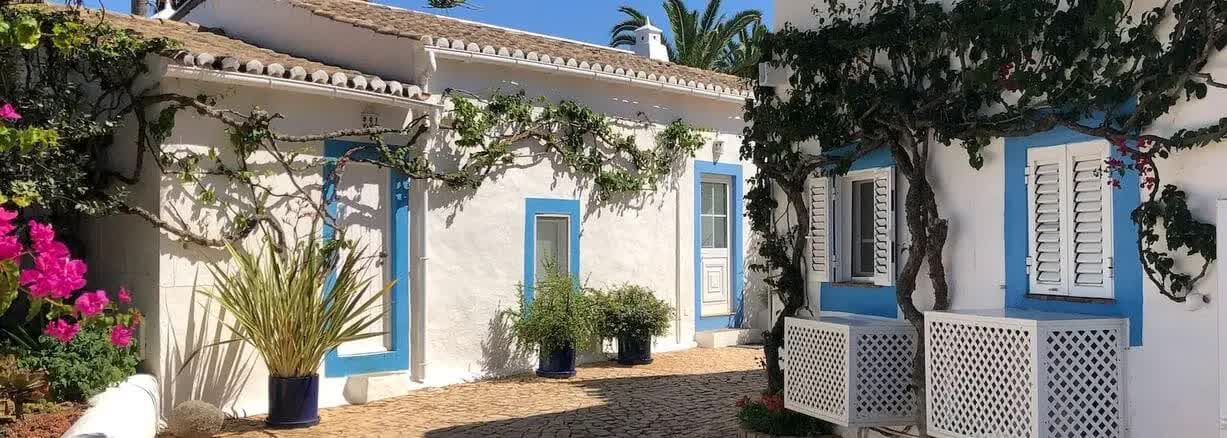
For those who are looking for a relaxed pace of life, vibrant landscapes, incredible food, and local traditions, then the Azores may be the perfect spot for you. In this section, we’ll unravel these charming islands a little more, arming you with practical information to ensure you have all the information you need at your fingertips.
Lifestyle in the Azores
Each island of the Azores has its own local traditions and customs. However, one thing that is universal amongst them is the stunning landscapes. From green rolling hills to atmospheric beaches and crystal clear lakes, you’ll be spoilt every day by the abundance of beauty to be found here.
Locals also enjoy a wide range of festivals throughout the year, such as the Festa das Vindimas (Wine Harvest festival) or the Festival da Maré de Agosto (August seafood festival). If you are looking for a delightful, relaxed lifestyle, then these islands could be for you. With fresh seafood, tea, and pineapple, in addition to local cheeses, food lovers will certainly not be disappointed.
For luxury buyers, there are more properties on the islands of São Miguel and Terceira, and the luxury market has come on leaps and bounds in recent years. From modern villas to luxury apartments, you’ll find a wide array of property types.
Healthcare in the Azores
In the Azores, as with the rest of Portugal, you will have access to the National Health Service (SNS) if you have a Portuguese residence permit and are a resident of Portugal. The SNS is generally very good, and you can also find private healthcare options. Bear in mind that if you are based on one of the smaller islands, you may find services to be lacking, so bear this in mind when buying property in the Azores.
Cost of living in the Azores
Portugal is one of the most affordable countries in Western Europe, and in the Azores, you will likely be pleasantly surprised by the low cost of living. While those looking for cheap properties will find some bargains, more luxury properties are also very reasonable when compared with their equivalent types in other Western European destinations.
If you are looking to live a luxury lifestyle with fine dining and luxury resorts, expect to pay higher prices. Also, bear in mind that as the Azores is an island, imported goods can be a bit pricey.
Education in the Azores
If you are looking to move to the Azores with family, then São Miguel has the most schooling options, with private and public education. You will, however, find options on the other islands. For example, Manuel de Arriaga Public School, the oldest school in the archipelago, was founded in 1853 and is a good option for children. The school can be found in Horta, on the island of Faial.
Getting around in the Azores
With numerous regular flights from Europe and the USA, it’s best to get to the islands by plane. These islands boast three principal airports offering international flights. Moreover, each island has its own airport for domestic flights.
The flight durations vary from approximately five hours from the UK to the Azores, six hours from the USA, and two and a half hours from mainland Portugal. The international flight hubs include João Paulo II Airport in São Miguel, Horta Airport in Faial and Lages Airport in Terceira.
Exploring the Azores is best done by car, as public transportation is not extensively developed across the islands. Renting a car is recommended for flexibility and convenience in getting around. If you are looking to get from island to island, you have both ferry services and domestic flights.
Activities in the Azores
For nature lovers, you’ll find an array of hiking trails, biking routes, watersport activities, and diving opportunities to enjoy. With the famous hot springs, Furnas, and thermal waters, you can also simply relax in peace. Although not as well known as the Algarve, you will also find many golf courses to get your golf fix. Indeed, it is extremely easy to get out and about on these islands, perfect for retirees, family, and expats from all walks of life.
Step by Step: How to Buy Property in the Azores
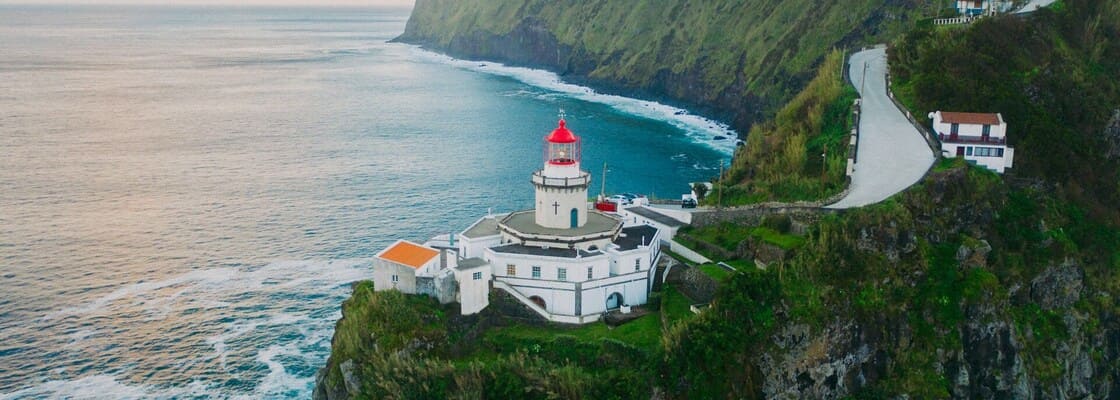
In this section, we’ll provide you with a step-by-step guide to buying property in the Azores, from obtaining your Portuguese NIF number (tax identification number) to signing the final deed and the taxes you’ll need to be aware of.
Steps | Details |
Step 1: Obtaining a Portuguese Tax Number | Non-EU citizens and EU citizens purchasing property in Portugal will need a NIF, the Portuguese tax number, to open a bank account and complete financial transactions in Portugal. If you are a non-EU citizen, you will need a fiscal representative to apply online or at the local tax office. |
Step 2: Secure financing for your property | Assess your finances, explore mortgage options from Portuguese banks, and understand associated costs such as taxes, legal fees, and property registration expenses. |
Step 3: Finding a property | Set a budget and research the Portuguese real estate market, focusing on location, amenities, and rental potential. Seek guidance from real estate professionals like buyer’s agents or real estate agents. |
Step 4: Purchasing the Property | Once you find a suitable property, negotiate an offer with the seller, potentially facilitated by a real estate professional. Consider having a buyer’s agent representing your best interests during negotiations. |
Step 5: Signing the Promissory Contract (CPCV) | After an offer is accepted, a Reservation Agreement may require a refundable fee. The Promissory Contract (CPCV) finalizes the deal, often with a 10 percent deposit, signed in front of a Notary. |
Step 6: Signing the Escritura | The Escritura, or Final Deed, officially transfers property ownership. Signed before a Notary, it involves paying remaining balances and fees. After signing, the buyer becomes the official owner, concluding the process. |
Step 7: Paying Fees and Complying with Property Tax Obligations | There are other costs involved besides the standard property prices including legal fees, property taxes, property transfer tax, and possibly capital gains tax if you ever decide to sell the property. |
Requirements for a Successful Property Purchase
When buying a property in Portugal, you will need to have a Portuguese NIF number (tax identification number), and we recommend opening a Portuguese bank account to save on transaction fees. In this section, we’ll provide you with more information on how to get an NIF, open a bank account, and the required documents you will need for your Portuguese property purchase.
Portuguese tax number
Your Portuguese NIF number is required to make any major financial transactions in Portugal and can be obtained from your local tax office, although you can also get this number online before even coming to Portugal. If you are a non-EU citizen, you will need to secure the assistance of a fiscal representative to get your number.
Portuguese bank account
Although not a requirement, we highly recommend opening a Portuguese bank account. There are many different options, from online banks to more traditional-style banks. You will also find many international banks present in the country, such as Barclays, Credit Suisse, and Deutsche Bank.
Required Documents
Besides your NIF, the following documents are required:
- Identification: A current and valid form of photo ID
- Contracto Promessa de Compra e Venda (CPCV): The agreement or deed of sale detailing the terms and conditions of the property transaction
- Energy certificate: Documentation specifying the energy efficiency rating of the property
- Stamp Duty (Imposto de Selo): Payment for the tax levied by the Tax Authority on property transactions
Caderneta Predial: The official land registry document containing pertinent details about the property, such as its location, boundaries, and registered owner
Property Taxes in the Azores

Although not many people’s favorite topic, it is crucial to understand the property taxes that you will need to pay upfront at the time of purchasing property, and the taxes that you will be required to pay on an annual basis. In this section, we’ll provide you with a rundown of the taxes that you will need to bear in mind.
Property taxes to pay at the time of purchase
Below are the taxes that you will be required at the time of purchasing property.
Property Purchase Tax (IMT)
The Imposto Municipal Sobre as Transmissões Onerosas de Imóveis (IMT), also known as the Municipal Tax on Onerous Transfers of Real Estate, is levied on property purchases in Portugal and can vary from 0 to 10 percent. The rate depends on various factors, including the type of property, its value, location, and whether the buyer intends to use it as a primary or secondary residence.
Stamp Duty
When purchasing property in Portugal, at the time of purchase, you will also need to factor in Stamp Duty (Imposto do Selo), one of the country’s oldest taxes. Regarding property acquisitions, Stamp Duty is imposed at a rate of 0.8 percent on property transfer transactions.
Taxes to pay on an annual basis
Below, we outline the taxes that you will be required to pay on an annual basis.
Municipal Property Tax (IMI)
The Municipal Property Tax (Imposto Municipal sobre Imóveis) is an annual tax for property owners in Portugal. The tax rate varies between municipalities, typically ranging from 0.3 to 0.5 percent for urban properties and up to 0.8 percent for rural ones. It’s worth noting that IMI is calculated based on the property tax value (VPT), not the purchase price, which often benefits the taxpayer since the VPT is typically lower than the market value.
Additionally, properties located in rehabilitation areas undergoing renovation may qualify for IMI exemptions for three years, extendable to five years if the property serves as the owner’s primary residence.
AIMI (Wealth Tax)
AIMI (Additional to IMI) is a tax that you will need to pay is the value of your property exceeds €600,000. This tax, imposed after purchase, comprises three tiers:
- Properties valued between €600,000 and €1 million incur a tax rate of 0.7 percent
- Properties valued between €1 million and €2 million are subject to a 1 percent tax
- Properties valued above €2 million face a tax rate of 21.5 percent
Captial Gains Tax
If you’ve already purchased a property in Portugal and are contemplating selling it, it’s important to be aware of the tax implications associated with the profits from the sale.
As a non-resident, any profit from the sale of a property is subject to a flat rate of 28 percent. For Portuguese residents, real estate taxes apply to gains from investments and properties acquired after January 1, 1989. These taxes are calculated based on a scale ranging from 14.5 percent to 48 percent, depending on the individual’s income bracket.
When filing your tax return, it’s important to include details such as the purchase date and price of the property, as well as invoices for any improvements or maintenance work carried out, such as installing a new heating system. These expenses will be factored into the assessment of capital gains.
Note that there are exemptions to Capital Gains Tax. For instance, if you are selling your primary residence in Portugal and reinvesting in Portuguese property within three years after the sale (or two years prior) or if the property was first occupied in your name before January 1989, you may be exempt. Alternatively, reinvesting the proceeds from the sale of your primary residence in Portugal into a second primary residence in the EU could also qualify for exemption.
Financing Your Property in the Azores
If you looking to secure assistance with financing your property in Portugal, there’s a wide range of financing options available, with over 15 banks offering lending to international buyers. Consulting a mortgage broker can help you identify the most suitable option tailored to your specific needs.
For tax residents in Portugal, the Loan-to-Value (LTV) ratio can go up to 90 percent for primary residences, decreasing to 80 percent for vacation homes. This calculation is based on the lower value between the purchase price and the bank’s appraisal.
For non-residents in Portugal, the maximum LTV ratio typically ranges from 60 to 70 percent, though it may vary slightly among different banks.
Maintaining and Managing the Property
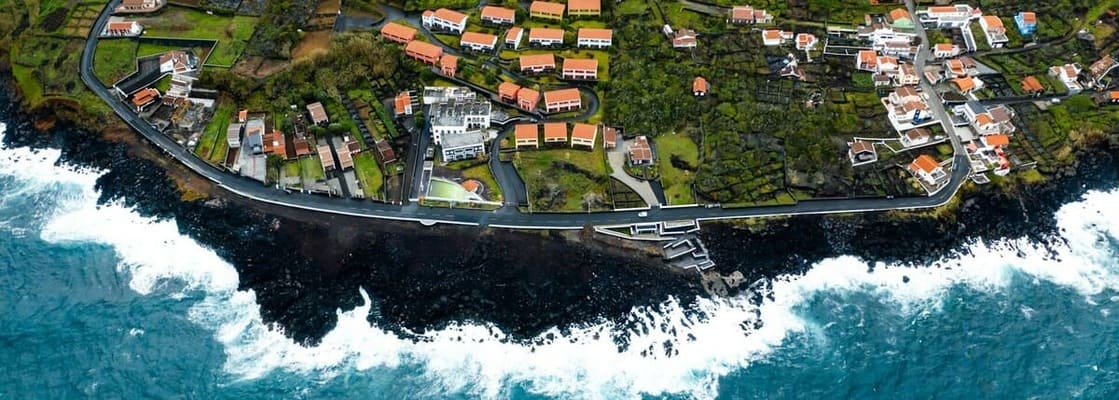
When buying property in Azores, you may want to consider working with a property management company should you be overseas for an extended period of time. When looking for the right property management company, make sure to consider their experience working with expats.
A top tip is to seek referrals. If you know anyone who has worked with a property management company in the Azores in the past, then this can be a good starting point. If not, you can do a simple online search to source potential companies, get in touch with the ones that you have shortlisted and ask them targeted questions. Ask them about their experience, get them to clarify any questions that you may have, and ask them about their prices. A property is a valuable asset, and you will want to ensure that your property is in safe hands.
Property Purchase Costs
Alongside the property cost and taxes, there are additional costs that you should bear in mind. This includes legal fees, Notary fees, and land registration fees.
- Legal fees: €2000-€5000, depending on the type of property, the price, and the complexities of the purchase
- Notary fees: €1,200
- Land registration fees: €250
Buying Property in Azores for Foreigners: Pitfalls
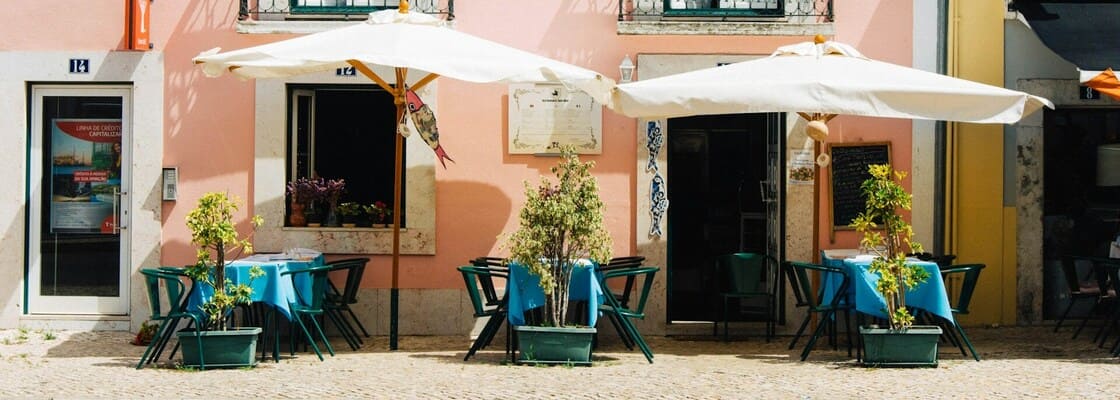
When buying property in the Azores or anywhere else in Portugal, you should ensure you are aware of the following pitfalls and how to remedy them to ensure a smooth property purchase.
- Legal complexities and due diligence: Even when buying in your home country, navigating legalities can be tricky. In Portugal, when you are unfamiliar with local processes, language, and customs, it is a whole different ball game. While working with a lawyer is not mandatory, we highly recommend working with an experienced real estate lawyer to make sure that you won’t have to deal with any legal issues. They will be able to review contracts, ensure the owner has the right to sell, and determine if there are any outstanding debts to the property that would be transferred over to you.
- The property’s location: Make sure that the property is located in a good spot where you are close to all the amenities that you require. The Azores can be quite remote, so it is important to know where the closest shop, school, restaurant, or hospital is before buying property.
- Taxes: Make sure you are completely up to speed on the taxes that are required of you to avoid fines further down the line. This includes taxes to pay at the time of purchase and taxes to consider on an annual basis.
- Define your budget: Before beginning the process of searching for Azores property, you will want to clearly define your budget to determine the property price bracket based on these requirements.
- Work with experienced local professionals: Entering the property market in the Azores, it is important to work with experienced professionals in the field. They will be able to discuss your options to help you discover the best place to buy. They will be able to assist with narrowing down the property location, help you navigate property prices and investment potential, and provide insights into which property type could be best suited to your requirements so you secure the perfect property.
Is it worth buying property in the Azores?
As one of the best islands in the world, according to CN Traveler, Forbes, and EnVols, the Azores are spellbinding. While a decade ago, they may not have been on many investors’ hit lists and were relatively unknown, now they are one of the must-see destinations in Europe.
With a relaxed pace of life, a higher quality of lifestyle, and rich gastronomy, owning a property here – particularly for nature lovers – could be the ultimate dream. There is also the potential to secure a strong return on your investment, given the continued growing influx of tourists to these islands. Investors should certainly take note.
Be Global Properties: How We Can Help You Find Your Dream Home

Whether you are looking for a fabulous home to relocate to with your family, an investment property, or for a lovely place to retire to, BE Global Properties is here to help you uncover the property of your dreams.
There are many challenges to buying property in Portugal and finding the perfect property designed for your exact needs. BE Global Properties provides you with a carefully curated list of properties for the discerning property buyer.
At BE Global Properties, we’ve painstakingly crafted a platform that surpasses conventional standards. It’s more than just a listing service; it serves as an exclusive portal to access some of the most remarkable properties worldwide, many of which can be found in Portugal.
Frequently Asked Questions about Real Estate in the Azores
Where is the best place to buy luxury Azores real estate?
You’ll find most Azores luxury real estate options in São Miguel, particularly in Ponta Delgada and surrounding areas, offering stunning ocean views and upscale amenities.
Is the Azores real estate market a good investment?
The Azores real estate market shows promise with growing tourism number year-on-year and infrastructure developments. Property investment can yield good returns, especially in key tourist hubs like São Miguel.
Are the Azores islands a good place to retire?
The Azores offer a serene and affordable retirement option with a mild climate, pristine landscapes, and a peaceful lifestyle, making it appealing for retirees seeking tranquility.
Is the Azores a good place to live?
With its natural beauty, laid-back lifestyle, and welcoming community, the Azores offer an exceptional quality of life, making it an attractive choice for those seeking a peaceful and picturesque home.
Can an American live in the Azores?
Yes, Americans can live in the Azores. The islands are part of Portugal, allowing Americans to live there for extended periods with a valid visa or residency permit.
Is there an expat community in the Azores?
Yes, there is a small but vibrant expat community in the Azores, particularly on São Miguel and Terceira islands, offering support, social activities, and shared experiences for newcomers.
Can foreigners buy property in Azores?
Yes, foreigners can buy property in the Azores. Portugal has no restrictions on property ownership for non-residents, making it accessible for international buyers.
Which is the prettiest island in the Azores?
Beauty is subjective, but São Miguel is often considered the most picturesque, boasting stunning landscapes, including volcanic craters, lush greenery, and azure lakes.
Can a US citizen buy property in the Azores?
Yes, US citizens can buy property in the Azores. Portugal’s property ownership laws are open to foreigners, allowing US citizens to invest in real estate on the islands.
Is the Azores a good investment?
With its growing tourism sector, favorable real estate market, and government incentives, the Azores present promising investment opportunities for those seeking long-term returns and lifestyle benefits.
Is property expensive in the Azores?
Property prices in the Azores vary depending on location and amenities, but compared to mainland Europe, they generally offer good value for money, making it an attractive option for buyers seeking affordability with a touch of luxury.

